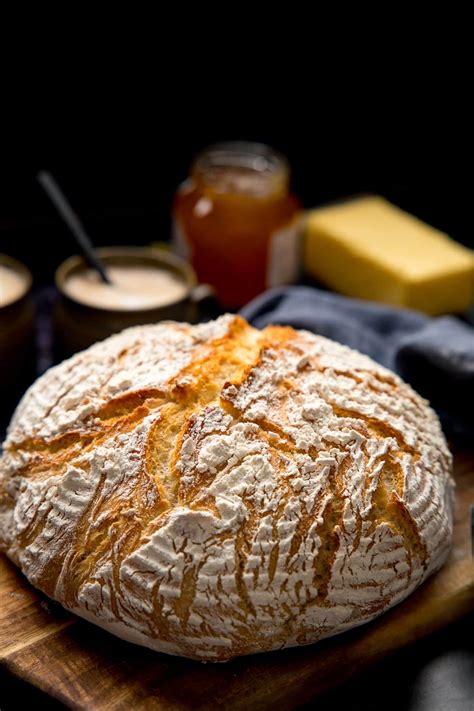Artisan Bread Recipes: Elevate Your Baking Game
Are you ready to take your bread baking to the next level? Artisan bread, with its rustic charm and incredible flavor, is more achievable than you think. This guide will walk you through some delicious and surprisingly simple artisan bread recipes, perfect for both beginners and experienced bakers. We'll cover everything from the essential ingredients and techniques to tips and tricks for achieving that perfect crust and airy crumb. Get ready to impress yourself (and your friends!) with your newfound bread-making prowess.
Understanding Artisan Bread: Key Ingredients and Techniques
Artisan bread distinguishes itself through its simple yet impactful ingredients and specific baking techniques. Let's break down the essentials:
The Power of Flour
The foundation of any great artisan loaf lies in the flour. Bread flour, with its higher protein content, is key to developing the strong gluten network that gives artisan bread its characteristic chewy texture. Experimenting with different flours, such as whole wheat or rye, can add depth of flavor and nutritional value.
The Importance of Hydration
The hydration level (the ratio of water to flour) significantly impacts the texture of your bread. Higher hydration leads to a more open crumb and a thinner crust, while lower hydration results in a denser crumb and a thicker crust. Finding the right hydration for your flour and recipe is key to success.
The Art of Fermentation
Proper fermentation is crucial for flavor development in artisan bread. Allowing the dough to rise slowly at cool temperatures allows complex flavors to develop and gives your bread that signature tang. This process can take several hours, or even overnight, but the results are worth the wait.
Scoring Techniques: Unleashing the Beauty
Scoring – creating precise cuts on the surface of the dough before baking – isn't just for aesthetics. It controls the direction of expansion during baking, preventing cracks and promoting a beautiful, evenly risen loaf. Different scoring patterns create unique appearances.
Simple Artisan Bread Recipes to Try
Here are a few straightforward recipes to get you started on your artisan bread journey:
Basic No-Knead Artisan Bread
This recipe is perfect for beginners. Its simplicity belies the delicious results. The long fermentation time does most of the work, minimizing kneading and maximizing flavor.
Ingredients:
- 3 cups bread flour
- 1 ¾ cups warm water
- 1 ½ teaspoons salt
- ½ teaspoon yeast
Instructions: (Simplified for brevity – detailed instructions easily found online)
- Combine ingredients in a bowl.
- Let rise for 12-18 hours.
- Shape into a boule or loaf.
- Bake at 450°F (230°C) for 30-40 minutes.
Rustic Sourdough Bread (Intermediate)
This recipe introduces the complexity of a sourdough starter, lending a unique tangy flavor to the bread. The starter requires advance preparation but is a rewarding addition to your baking repertoire.
Ingredients:
- Active sourdough starter
- Bread flour
- Water
- Salt
Instructions: (Simplified – detailed instructions easily found online)
- Mix starter, flour, water, and salt.
- Bulk fermentation.
- Cold proof overnight.
- Bake.
Focaccia with Herbs and Olive Oil (Beginner-Friendly)
Focaccia offers a slightly easier entry point into artisan bread making. Its forgiving nature makes it great for beginners, while still yielding a deliciously flavorful and impressive loaf.
Ingredients:
- Bread flour
- Water
- Yeast
- Olive oil
- Salt
- Fresh herbs (rosemary, thyme, etc.)
Instructions: (Simplified – detailed instructions easily found online)
- Combine ingredients, knead lightly.
- Let rise.
- Stretch and dimple the dough.
- Top with herbs and olive oil.
- Bake.
Tips for Artisan Bread Success
- Use a good quality scale: Precise measurements are crucial for consistent results.
- Don't overwork the dough: Gentle handling is key to preventing a tough loaf.
- Experiment with different flours: Explore whole wheat, rye, or spelt for unique flavor profiles.
- Practice your scoring techniques: Mastering scoring will elevate the look of your loaves.
- Patience is key: Artisan bread requires time for fermentation and flavor development.
With a little practice and these delicious recipes, you'll be baking stunning artisan bread in no time. Enjoy the journey and the rewarding taste of homemade goodness!
